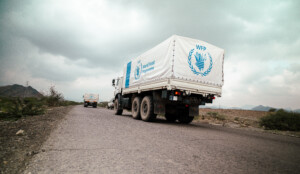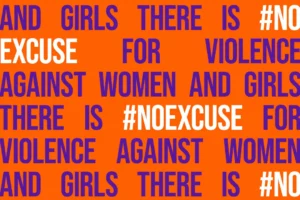Sudan OCHA bulletin 50: 2017 Global Humanitarian Overview appeal for $22.2 billion
On 5 December, the 2017 Global Humanitarian Overview (GHO) was launched, appealing for $22.2 billion—the highest appeal ever—to meet the needs of the 93 million most vulnerable people in 33 countries. The UN Children’s Agency (Unicef) reported that 12,800 children in Golo (Jebel Marra in Central Darfur) are in need of educational assistance. About 2,800 South Sudanese refugees arrived in South Kordofan since September.
On 5 December, the 2017 Global Humanitarian Overview (GHO) was launched, appealing for $22.2 billion—the highest appeal ever—to meet the needs of the 93 million most vulnerable people in 33 countries. The UN Children’s Agency (Unicef) reported that 12,800 children in Golo (Jebel Marra in Central Darfur) are in need of educational assistance. About 2,800 South Sudanese refugees arrived in South Kordofan since September.
The 2017 Global Humanitarian Overview (GHO) appeal for $22.2 billion is the highest appeal ever, the UN Office for the Coordination of Humanitarian Affairs (OCHA) in Sudan reports in its latest weekly bulletin.
In 2016 $11.4 billion was raised in support of humanitarian appeals – more than ever before. Yet, despite immense donor generosity, this only represents 52 per cent of the $22.1 billion requested for the year, the OCHA bulletin reads. The inability to find political solutions to man-made and protracted crises such as these, and many others, continues to account for most of the financial requirements for 2017.
At the World Humanitarian Summit earlier this year, it was recognised that the only way to get people out of a perpetual cycle of crisis is to reduce need and vulnerability at the source. It was agreed to look at ways to give more support to local and national responders, both directly and through country-based pooled funds and the Central Emergency Response Fund. The GHO aims to support these goals by setting a framework for multi-year action and by improving the coherence between humanitarian and development programmes.
2016 Humanitarian Response Plan Sudan funding increases
Donor funding provided under the 2016 Humanitarian Response Plan (HRP) for Sudan has increased from 44 per cent to 55 per cent of the requested amount over the past week, following contributions of more than $110 million by the US Agency for International Development (USAID), the UK Department for International Development (DFID) and other donors.
As of 11 December 2016, donors have provided $536.3 million for this year's HRP, as per the Financial Tracking Service (FTS) that tracks financial contributions against HRPs and other appeals. However, there is an uneven distribution of funding across the sectors, with Food Security and Livelihoods (FSL) being the top funded sector (66.3 per cent), while some sectors have received little funding, including Logistics and Emergency Telecommunications (LET) – 13.7 per cent, and Recovery, Return and Reintegration (RRR) – 19.4 per cent.
 UN Member States have invested at least US$3.2 billion in the humanitarian response in Sudan over the past five years.
UN Member States have invested at least US$3.2 billion in the humanitarian response in Sudan over the past five years.
According to aid experts, this international humanitarian aid has stabilised the living conditions of millions in Darfur and other areas, avoided increased mortality and morbidity, and prevented a spill-over effect and further displacements abroad.
Education needs in Jebel Marra and other areas
In mid-October, an education assessment carried out by the UN Children’s Agency (Unicef) identified that 3,800 schoolchildren and 9,000 out-of-school children in Golo in Central Darfur’s Jebel Marra are in need of educational assistance.
All basic schools were found to be functioning, but with a shortage of classrooms and supplies, lack of toilets and drinking water, and the absence of school feeding programmes. Teachers have not been trained since 2003.
Based on the needs identified, the education sector and UNICEF have released school supplies to reach 2,200 children and have allocated funds to improve learning conditions. However, the gap is substantial and requires additional resources.
EU support to emergency education
On 12 December, UNICEF and the European Commission signed a €1 million (about $1.05 million) agreement that will provide emergency education support to over 10,000 vulnerable and conflict-affected children in Sudan.
The EU support will help provide access to education for conflict-affected internally displaced children, children from host communities and refugee children in Kario (East Darfur), Tawila (North Darfur), and El Meiram (West Kordofan) through the construction of schools with water, sanitation and hygiene (WASH) facilitates, and the provision of teaching and learning materials.
Ongoing needs assessments in Jebel Marra
An inter-agency assessment mission to Tur in Central Darfur from 5 to 7 December found that 29,416 people (4,263 families), including displaced people from Jebel Marra and the host community are in need of humanitarian assistance.
The inter-agency mission identified food, emergency household supplies, as well as access to health, water, sanitation, protection and education services as the main needs. Aid organisations are currently preparing their response.
South Sudanese refugee influx into El Leri, South Kordofan
The governmental Humanitarian Aid Commission (HAC) in South Kordofan has reported the arrival of 2,800 South Sudanese refugees in the El Leri area since September.
Many of the refugees, who fled their homes due to conflict and food insecurity, have walked for more than eight days from Upper Nile and Unity states in South Sudan, with some arriving from as far as Juba. Some of the refugees lived in Sudan before the secession of South Sudan in 2011, and have ties with host communities in South Kordofan.
According to HAC, access to basic services is very poor in El Amira, with no health facilities in place and water is supplied from untreated groundwater from hafeer’s (traditional water reservoirs).
The areas currently hosting refugees in Darbati and El Leri have very limited capacity to absorb any new influx. The World Food Programme (WFP) is planning another food distribution of 499 metric tonnes to El Leri in December. UNHCR and partners are working to conduct a needs assessment of the situation to inform planning to address the immediate needs of new arrivals.
HAC also reported an increase in the number of South Sudanese refugees in Abu Jubaiha locality.









 and then
and then